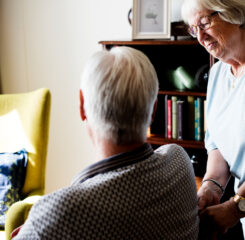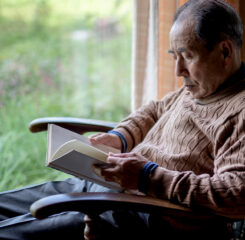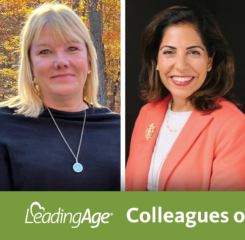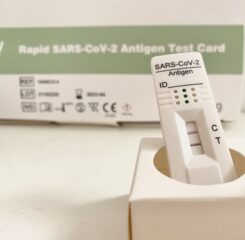The New Jewish Home in New York City has expanded its program to help under-resourced high school students and young adults pursue careers in health care and higher education.
SkillSpring is the new name of the former Geriatrics Career Development (GCD) program, which was founded in 2006 to “meet the rising demand for senior care professionals, and increase career opportunities for underserved young adults,” in the words of President and CEO Jeffrey Farber, M.D. The program has been expanded in response to the acute workforce shortages that have become routine on the field.
The goals for SkillSpring are to scale up the services provided and to include other aging services providers in the New York region. The first partner in this effort is The Hebrew Home at Riverdale in the Bronx.
“Our core mission has always been threefold,” says Farber: “to create pipelines of high-value talent in the senior care industry; advance academic and career success for underserved youth lacking access to professional development opportunities; and promote intergenerational relationships that enrich the lives of older adults and the youth we serve.”
The expansion was helped by a $500,000 grant in 2022 from the Heckscher Foundation for Children; it has just been renewed for 2023. Other funds come from government, other foundations, and individual donors. The Solon E. Summerfield Foundation has also contributed to the program expansion.
Training, Professional Development, and Wraparound Supports
SkillSpring includes two programs: Its Young Adult Program, launched in 2014, prepares people aged 18-24 for long-term health care employment, offering CNA training in a 12-week curriculum. Participants have access to case management and referral services, along with one-on-one coaching in a long-term care setting. Participants are referred to this program by program alumni, social service agencies, and the New York City Housing Authority. The Young Adult Program serves 15-20 students in each cohort, with multiple cohorts each year.
The SkillSpring High School Program serves Manhattan and Bronx students in grades 10-12 with an intensive, three-year after-school workforce development program. In addition to the CNA training, nearly all graduate high school and attend college. The High School Program serves 275 students per year, on average.
“We also partner with local educational institutions,” says Farber. “Lehman College provides certification classes for participants interested in furthering their health care education, and the City University of New York collaborates with us to support our alumni throughout their college experience.”
“Among our alumni, 91% are employed, enrolled in postsecondary education, or both,” Farber notes. “To date, we have hired more than 150 SkillSpring alumni to work in our [communities].”
SkillSpring is led by Director Nicole Cash, and includes a team that draws on executive leadership, training, social work, and technology. Some instructors are past graduates of the GCD program. The CNA training is administered in partnership with CUNY-Lehman College’s School of Continuing Education.
Many of the participants in SkillSpring live with multiple barriers to employment: 42% of participants have previously experienced homelessness; 40% were public housing residents at the time of enrolling in SkillSpring; and 39% were young parents.
Because such participants’ education might be derailed by difficult life circumstances, The New Jewish Home offers wraparound supports. A needs assessment is completed for each young adult to determine what assistance they might need. The program offers MetroCards, uniforms, internship stipends, scholarships, and student incentives. It also makes meals, snacks, SAT preparation, and homework help available to students.
“We also provide case management for participants by connecting them with resources such as SNAP application assistance with the NYC Human Resources Administration,” Farber says. “We collaborate with our partner, the Stanley M. Isaacs Neighborhood Center in New York City, to provide participants with job readiness preparation, including resume assistance, professional development, and financial literacy.”
Most participants leave the Young Adult Program with a CNA license. There have been more than 200 graduates since 2014; many begin working full-time as CNAs when they finish the program. Graduates of the High School Program—who number about 800 since 2006—often pursue higher education and, according to Farber, are often the first in their families to attend college. Many have worked as CNAs.
Farber is optimistic about the replicability of the SkillSpring approach. “Our expansion to Hebrew Home at Riverdale has validated the value of our model to other providers and has given us valuable data to drive our plans for scaling and sustainability,” Farber says. “Our 2023 roadmap includes […] a broader implementation across New York. It’s a natural progression that allows us to build towards our vision for a national platform that has the multi-faceted benefit of solving crisis-level staffing shortages […] by developing superior yet untapped talent pools.”
The Geriatrics Career Development Program was named as the LeadingAge Catalyst for January 2020. For more background on the program, see the article, “January 2020 LeadingAge Catalyst.”
Photo courtesy of The New Jewish Home.
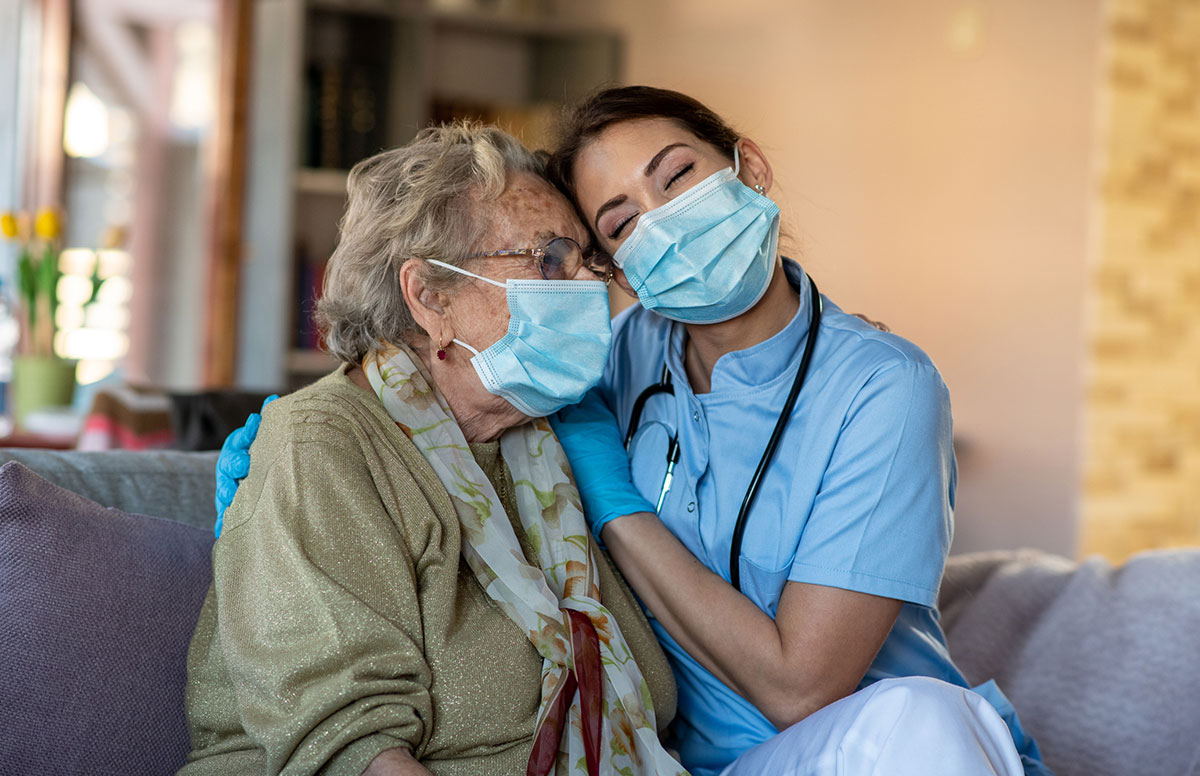
 Hospice CARE Act Introduced; Payment Provision Summary
Hospice CARE Act Introduced; Payment Provision Summary Nursing Home Staffing Mandates: What You Need to Know
Nursing Home Staffing Mandates: What You Need to Know Acceptance to Service Policy: What Home Health Agencies Need to Know
Acceptance to Service Policy: What Home Health Agencies Need to Know Analysis: What Does the Final CY2025 Home Health Rule Include?
Analysis: What Does the Final CY2025 Home Health Rule Include?